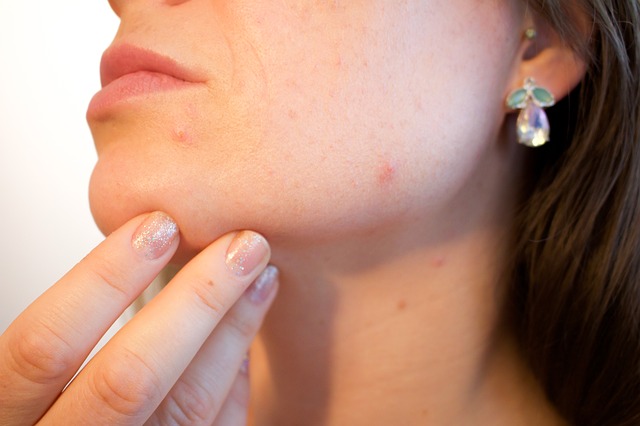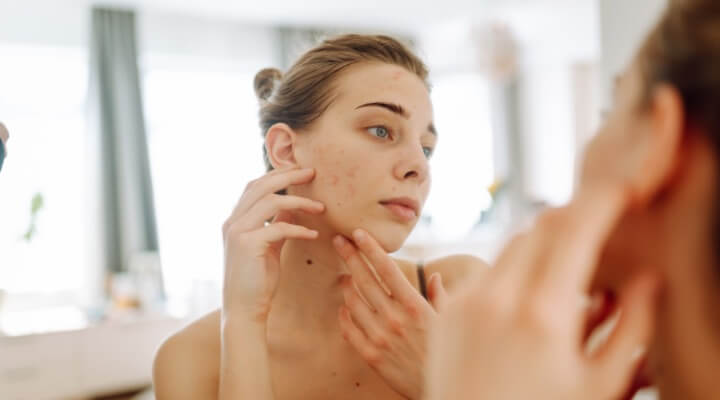Impact of Climate on Skin Conditions: How Weather Affects Your Skin
As a beautician, understanding the intricate relationship between climate and skin conditions is crucial. The impact of climate on skin conditions is a topic of immense relevance, as it guides the advice we provide to our clients. Different weather patterns can significantly influence the health and appearance of the skin, leading to various conditions that require tailored skincare solutions.

Understanding the Connection Between Climate and Skin
The skin, being the body's largest organ, acts as a barrier between the internal and external environments. It's sensitive to changes in temperature, humidity, and overall climatic conditions. As beauticians, it's important to educate clients on how these factors can exacerbate existing skin issues or even cause new ones.
For example, a humid climate can lead to increased oil production, which might exacerbate acne-prone skin. On the other hand, cold and dry climates can strip the skin of its natural moisture, leading to conditions like eczema and psoriasis. Understanding these patterns can help in providing effective skincare advice, ensuring that clients maintain healthy skin irrespective of the weather.
How Humidity and Dryness Affect Skin Health
Humidity levels play a crucial role in skin health. In regions with high humidity, the moisture in the air can trap sweat and oil on the skin's surface, leading to clogged pores and acne breakouts. Conversely, low humidity levels, often found in colder climates, can dry out the skin, causing flaking, irritation, and increased sensitivity.
As a beautician, recommending products that balance moisture levels is essential. Emphasizing the importance of hydrating skincare routines during dry seasons and oil-controlling products during humid periods can help clients achieve optimal skin health. For more detailed skincare tips, visit this article on regular dermatologist check-ups.
The Role of Temperature in Skin Conditions
Temperature fluctuations can also impact skin health. Extreme heat can lead to increased sweat and oil production, while cold temperatures can cause the skin to lose its natural moisture barrier. These changes can exacerbate conditions like rosacea or cause flare-ups in individuals with sensitive skin.
Beauticians should advise clients to adapt their skincare routines according to the season. For instance, using lighter, oil-free moisturizers in the summer and richer, more hydrating products in the winter can help maintain the skin's balance. For further insights into skincare routines, check out our guide on skincare essentials.

Sun Exposure and Its Effects on Skin
Sun exposure is a well-known factor in skin health, with both positive and negative effects. While moderate sun exposure can help in Vitamin D synthesis, excessive exposure can lead to sunburn, premature aging, and increased risk of skin cancer.
Beauticians should stress the importance of sun protection year-round. Recommending broad-spectrum sunscreens with at least SPF 30 can protect clients from harmful UV rays. Additionally, suggesting protective clothing and accessories during peak sun hours can further prevent sun damage. For more on protecting the skin from the sun, explore our resources on skin health.
Addressing Climate-Induced Skin Conditions
Recognizing and addressing climate-induced skin conditions is a key responsibility for beauticians. Whether it's recommending products that combat dryness in winter or advising on oil-control solutions in summer, understanding the climate's impact allows for personalized skincare advice.
Encouraging clients to monitor their skin's response to seasonal changes and adapt their routines accordingly can result in healthier, more resilient skin. Regular check-ups with dermatologists can also aid in diagnosing and managing skin conditions effectively. For more advice on maintaining skin health, visit our comprehensive guide on skin conditions.
FAQ Section
Q1: How can I protect my skin in extreme climates?
A: Use tailored skincare products for the specific climate, such as hydrating creams in dry weather and oil-free formulas in humid conditions. Regular dermatologist visits can also provide personalized advice.
Q2: What are the best practices for sun protection?
A: Apply broad-spectrum sunscreen with at least SPF 30 daily, wear protective clothing, and seek shade during peak sun hours.
Q3: How does humidity affect acne-prone skin?
A: High humidity can trap sweat and oil on the skin, leading to clogged pores and breakouts. Use oil-controlling products to manage acne in humid conditions.

